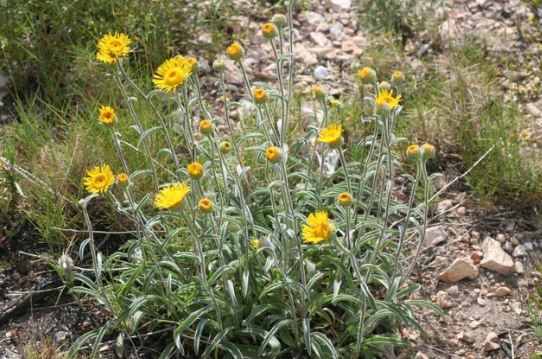Description
Ce projet a pour objectif la valorisation de la biodiversité du territoire local (Parc Régional du Luberon) par l’étude d’une plante de la médecine traditionnelle provençale Inula montana utilisée dans les mêmes indications qu’Arnica montana, plante menacée et difficilement cultivable. Inula montana pourrait constituer une alternative à l’utilisation d’Arnica montana.
Les travaux porteront sur l’analyse des caractéristiques de croissance et de développement de la plante sauvage sur trois sites témoins identifiés sur le territoire du Parc du Luberon, la définition des conditions édaphiques et climatiques, la réalisation d’études phytochimiques et cytologiques.
Les profils phytochimiques d’Inula montana seront établis par UPLC et comparés à ceux d’Arnica montana pour laquelle les constituants sont connus grâce à des études metabolomiques.
La connaissance de la biologie de la plante permettra de déterminer les conditions favorables à sa domestication et à l’optimisation de la production des molécules d’intérêt.
La mise au point de l’extraction des principes actifs sera effectuée selon des procédés respectueux de l’environnement. Enfin le développement de formulations innovantes à visée anti-ecchymose et anti-traumatique seront envisagées.
Ces travaux doivent permettre d’ouvrir de nouvelles perspectives à l’agriculture de moyenne montagne dans un contexte où « le vivant » est appelé à retrouver sa place dans la société d’aujourd’hui.
+ Ce projet est soutenu par un travail de thèse (2014-2017)
+ Partenaires :
- Parc Régional du Lubéron
- Université Aix Marseille (Laboratoire de Pharmacognosie)
- Plateforme de microscopie de l’INRA PACA.
+ Financement :
- UAPV
- Région PACA
- Tersys
English : The objective of this project is to give value to the biodiversity present in Parc Régional du Luberon through studying Inula montana, a plant that owns its place in provencal traditional medicine. Inula montana is used in the same indications as those of Arnica montana. As the latter is difficulty cultivated and threatened, Inula montana may constitute a potential alternative. The work will focus on analysing the growth characteristics of the wild plant on three identified control sites localised on the territories of Parc Régional du Luberon and on defining the endaphic and climatic requirements. The project aims also to realize cytological and phytochemical studies of the plant. Moreover, the phytochemical profile of Inula montana will be established by UPLC and compared to that of Arnica montana whose constituents are already known through metabolomic analysis. Biological knowledge of the plant allows the determination of the favourable conditions for its domestication and optimization of production of molecules of interest. The extraction of active compounds will be conducted using environmental-safe methods. Innovative formulations intended as anti-bruising and anti-traumatic may be proposed. This work permits us to open new perspectives concerning agriculture in mountains with average elevations within a context that allows a living organism to have its place in today’s society.

Les commentaires sont fermés.